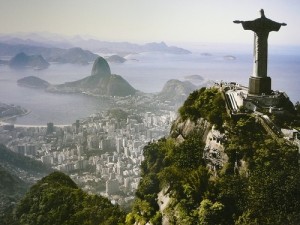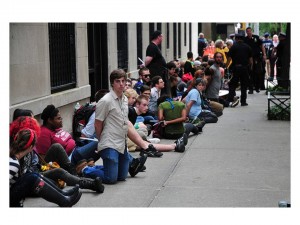 Tired of Western culture? Sick of television that shows soul-destroying ‘reality’ programmes and dramas that present the world as an exclusively violent, paranoid, drug-swamped hellhole? Ears bleeding in pain as radios and tv channels blast out derivative, maudlin, achingly talentless ‘music’ that is proud to have been rapaciously gutted by commercialism? Despairing at humanity over the disappearance of books and reading and the ability to sit still not saying a word for more than five seconds without suffering a nervous breakdown because you’ve not updated your Facebook/Twitter/Tumblr/Livejournal/Blogger for the 10,000th time this morning? Bored with the iPhone 5 already?
Tired of Western culture? Sick of television that shows soul-destroying ‘reality’ programmes and dramas that present the world as an exclusively violent, paranoid, drug-swamped hellhole? Ears bleeding in pain as radios and tv channels blast out derivative, maudlin, achingly talentless ‘music’ that is proud to have been rapaciously gutted by commercialism? Despairing at humanity over the disappearance of books and reading and the ability to sit still not saying a word for more than five seconds without suffering a nervous breakdown because you’ve not updated your Facebook/Twitter/Tumblr/Livejournal/Blogger for the 10,000th time this morning? Bored with the iPhone 5 already?
Fear not, the forced and inexorable churning of all Western culture into a universally branded and packaged beige soup is not the end of the world. The rich white countries may have turned their back on any kind of stimulation for the mind and creativity, but that doesn’t mean the rest of the world has. Look at any country, people, society, culture and language outside the borders of America and Europe and you will find most human beings enjoying the fruits of their imaginations, and they make for far more exciting and faith-restoring alternatives than anything reheated by capitalist-approved Western ‘culture’.
Take Brazil, for instance, a place that must surely be the sexiest of all corners of the globe – sexy people, sexy places, sexy music, just pure sex in general. A nation of natural booty-shaking music: from raucous samba with its flamboyant trumpets and referee whistles, to the minimalist beats and acapella chants of a capoeira duel, a dance and martial art that makes cartwheels and leg sweeps a thing of simple beauty (although, if you want a truly sexual style, another former Portuguese colony, Angola, has a dance called Tarraxinha that is basically porn with clothes on – highly recommended to learn). Brazil is where soccer becomes an artform, where a soccer match with Brazil is less a sport and more a particularly athletic ballet. Heaving, majestic Amazon jungles wash the landscape a deep green in the north, while in the south Brazil’s rainbow population (containing the largest population of black people outside of Africa) sing, dance, laugh, love and smile in the vast metropolises of Rio and Sao Paulo. Augusto Boal, one of the 20th century’s most revolutionary theatre practitioners, created the Theatre of the Oppressed in the 1960’s, a cross between democratic discussion, improvisation and role-playing with the goal being to education and encourage people to unite to solve their problems, which everything from modern political art to Occupy Wall Street owe a huge debt to. Food and drink perfume the air with delicious aromas in an endless variety of local dishes, with the earth itself growing more selection and choice than any of most cynical Western ‘food’ companies. Brazilian movies reflect the intense myriad walks of life, from the heart-warmingly coarse road movie Central do Brasil, to the Tarantino-esque swagger and cool (without the indulgent self-awareness and pretentiousness) of Cidade de Deus. Every February, the legendary Carnival transforms everyday life into a massive street party, with colours and sounds and a total breaking of inhibitions sweeping the country and getting everyone swinging their hips. And throughout all of this is one of the most gorgeous and sensual languages in the world, with the Brazilian writer Olavo Bilac calling Portuguese a última flor do Lácio, inculta e bela (“the last flower of Latium, wild and beautiful”).

And as for the sex? Wheew…..’Brazil’ must be the only word who’s every picture on Google search is NSFW. It seems physically impossible for a Brazilian woman not to have a luscious, mouth-watering booty. This is the only country in the world where total nudity is considered dressing conservatively. How many times have you been staring at the Brazilian flag during a soccer game only to realise two of those white stars are suspiciously nipple-shaped and have smiling face a few inches above? Brazilian men, and their Grecian-statue-like abs, have never even heard of upper-body clothing. And of course you know that a certain, ahem, hairstyle, takes its name from Brazil, as well as this being the place where one girl picked up a cup and said to her friend “Hey, I’ve got an idea….”. Brazil is sex. It’s also, technically, the most Catholic country in the world. Go figure.
Now all of this isn’t to say that Brazil is some paradise untouched by the technology, advancement and difficulties of the 21st century. As with all Latin American countries during the 20th century, interference by past US administrations and the CIA ushered in an era of totalitarian repression and violence (1964 – 1985) that turned Brazil into a vassal state of capitalist interests, with the current (and first female) president of Brazil, Dilma Rousseuff, a survivor of such a dark time, having been imprisoned and tortured by the junta in her younger days as an underground revolutionary (Boal was also a torture victim). Modern Brazil still suffers from huge crime and drug-abuse problems, corruption in the police forces and unresolved widespread poverty, with great portions of the populations of Sao Paulo and Rio de Janeiro living in the infamous favelas, the vast city-sized slums that sprawl up the surrounding mountains.

But the key difference between Brazil, and Latin America as a whole, from, say, the countries of the European Union, is that the Latin governments in power have not been sold off to corporations and banks, they don’t plug the holes in federal financies by stealing money from ordinary people, they don’t loan money to other countries with the proviso of taking over local businesses, and they don’t close all industry and manufacturing except for weapons and arms. Not only do Latin American countries have vibrant, unique cultures and societies bursting with music and energy, but they have governments and citizens proud of their combined achievements, working alongside each other and making sure neither is unaccountable and abusive of power. Problems do exist, of course, and it would be naive to say that any kind of political set-up in Latin America is perfect or properly balanced, but in comparison to the rapidly imploding West, cynical China and the overworked Asian Tigers, and the rest of the world that lies in financial and political (and sometimes militarial) chains by transnational corporations and their puppet governments in the US and Europe, Latin America is proof that it is possible to achieve a better way of life, one where people DO get involved in politics and take an interest in shaping their futures. And it is for this reason that, if ever a story breaks about the political and economic situations of Latin America, these countries, their presidents and their peoples are all labelled as rampant left-wingers, their governments held hostage to mob rule and stuffed with populist crowd-pleasers who are secretly sending their nations to ‘ruin’ (by, apparently, investing such unprofitable things as local businesses and lifting millions of people out of poverty and unemployment – the samething Obama has been doing successfully for the last three years yet has somehow avoided the same criticism from all but the Repulican party).
 So, in a nutshell, Brazil, and virtually every other country in Latin America, is a thriving, living, breathing community steeped in natural and social beauty, with an irrepressible spirit and admirable strength of will and determination to be the masters of their own destiny. Anyone disillusioned with modern life in the boring, homogenized West would do well to immerse oneself in this wonderful part of the world, and in doing so also use it as a springboard from to dive into the many millions of different cultures spread all over our beautiful planet. Take some inspiration from people outside your own neighbourhood, you’ll be grateful you did.
So, in a nutshell, Brazil, and virtually every other country in Latin America, is a thriving, living, breathing community steeped in natural and social beauty, with an irrepressible spirit and admirable strength of will and determination to be the masters of their own destiny. Anyone disillusioned with modern life in the boring, homogenized West would do well to immerse oneself in this wonderful part of the world, and in doing so also use it as a springboard from to dive into the many millions of different cultures spread all over our beautiful planet. Take some inspiration from people outside your own neighbourhood, you’ll be grateful you did.




